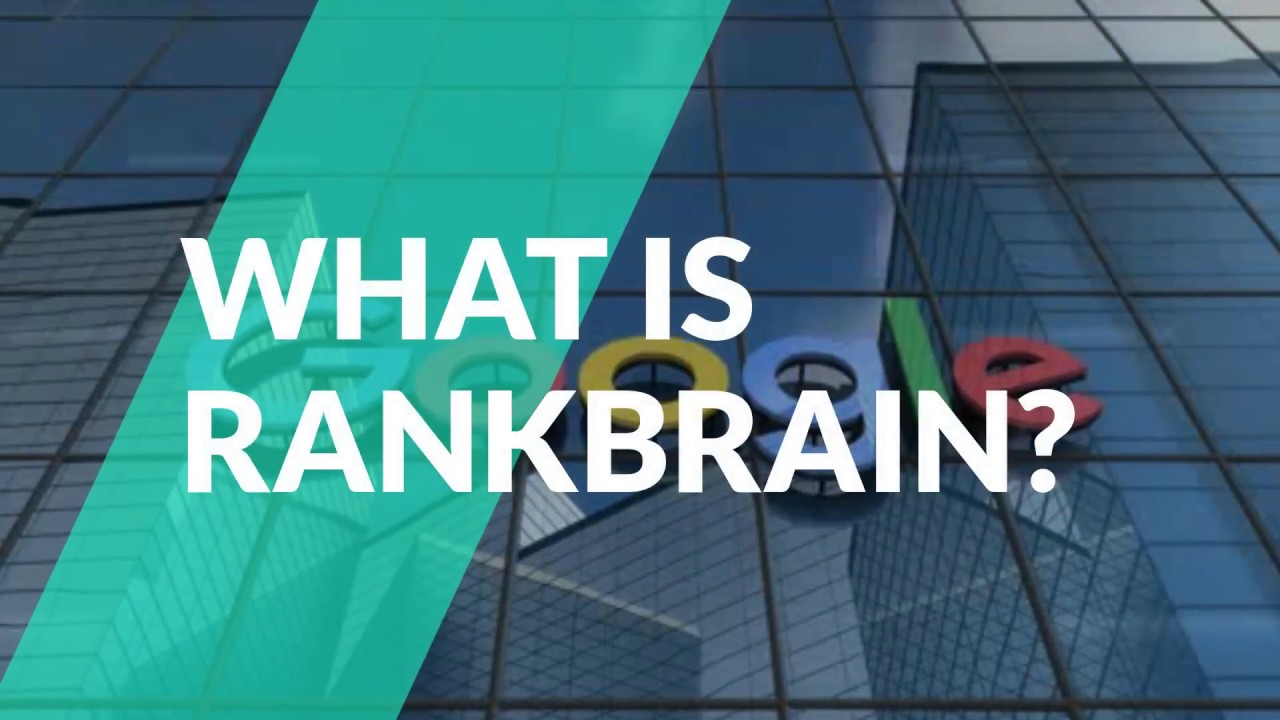In the ever-evolving landscape of search enginealgorithms, Google continuously strives to provide its users with the most relevant and accurate search results. Among the numerous updates and advancements, RankBrain has emerged as a significant development.
As search engine optimization(SEO) professionals and digital marketers seek to optimize their websites for better rankings, the question remains: Is RankBrain a ranking factor in Google Search? Introduced by Google in 2015, RankBrain is an AI-driven algorithm designed to enhance search query understanding. In this article, we will delve into the role of RankBrain and its impact on search rankings, shedding light on its importance in the search ecosystem.
What Is RankBrain?

What is Google RankBrain?
RankBrain is an artificial intelligence (AI) system developed by Google to enhance its search algorithms and improve the way it interprets and understands search queries. It was introduced by Google in 2015 as a part of its larger Hummingbird algorithm update.
Traditional search algorithms operated on predefined rules and patterns to match search queries with relevant web pages. However, with the vast amount of information available on the internet and the increasing complexity of search queries, conventional methods were becoming limited in their effectiveness.
To address this challenge, Google implemented RankBrain as a machine learning algorithm. Unlike traditional algorithms, RankBrain can "learn" from user interactions and analyze massive amounts of data. It works by identifying patterns and relationships between words and phrases, even in ambiguous or unfamiliar queries.
The primary goal of RankBrain is to improve the accuracy of search results and better understand user intent. When users enter complex or ambiguous search queries, RankBrain attempts to interpret the meaning behind them and then provides more relevant search results based on its learned patterns.
The History Of Google RankBrain
The history of Google RankBrain dates back to 2015 when Google introduced this revolutionary AI-based algorithm as a part of its Hummingbird update. The goal was to improve search query understanding and provide users with more accurate and relevant search results.
Introduction In 2015
In October 2015, Google announced the introduction of RankBrain as an AI-driven machine learning algorithm. The system was designed to handle a significant portion of Google's search queries, particularly those that were complex, ambiguous, or lacked clear search intent.
Machine Learning For Query Understanding
RankBrain's implementation marked a shift from traditional algorithms that relied on predefined rules and patterns to match search queries with relevant web pages. Instead, RankBrain used machine learning techniques to learn from user interactions and understand the relationships between words and phrases in search queries.
Interpreting Ambiguous Queries
One of RankBrain's key objectives was to better interpret ambiguous or never-before-seen search queries. By analyzing patterns in vast amounts of data, it could make educated guesses about the intent behind these queries and provide relevant search results.
Continuous Learning And Evolution
RankBrain's machine-learning capabilities allowed it to evolve continuously. As it processed more search queries and observed user interactions, it improved its understanding and became more proficient at delivering accurate search results over time.
An Integral Part Of Google's Algorithm
Though RankBrain is a crucial component, it doesn't work in isolation. It is integrated into Google's complex algorithm alongside other ranking factors to deliver the most relevant and useful search results to users.
User Experience And Relevance
With the implementation of RankBrain, Google emphasized the importance of user experienceand relevance in search results. The algorithm's goal was to connect users with valuable contentthat matched their search intent, even for queries where the exact wording may not have been used on any indexed web page.
Ongoing Algorithm Updates
Following its introduction, RankBrain became an essential part of Google's algorithmic updates. As Google continued to refine its algorithms, RankBrain's role and capabilities were further enhanced to improve the overall search experience for users.
The Influence On SEO Practices
RankBrain's introduction impacted SEOpractices, as it emphasized the importance of creating content that aligns with user intent rather than merely focusing on specific keywords. Websites that provided valuable and relevant information to users were more likely to benefit from improved rankings, thanks to RankBrain's impact on user satisfaction metrics.
Why Did Google Launch RankBrain?

What is Google RankBrain & Why Should I Care - Oozle Update
Google launched RankBrain to address the challenges posed by the ever-increasing complexity of search queries and to improve the accuracy of its search results. Traditional search algorithms relied heavily on predefined rules and patterns to match search queries with relevant web pages. However, as the internet grew and user search queries became more diverse and intricate, these conventional methods proved to be limited in their effectiveness. Here are the primary reasons why Google launched RankBrain:
- Complexity of Search Queries -With billions of searches performed on Google every day, a significant portion of these queries were becoming increasingly complex, ambiguous, or lacking clear search intent. Traditional algorithms struggled to understand the context and meaning behind such queries, leading to less accurate search results.
- Ambiguous and Novel Queries -Users often formulate search queries with variations, misspellings, or unique phrasing, making it challenging for traditional algorithms to comprehend their true intent. As a result, some relevant web pages were not displayed in the search results.
- Enhanced User Experience -Google has always focused on delivering the best user experience possible. By launching RankBrain, Google aimed to improve the relevance and accuracy of search results, ensuring users find what they are looking for quickly and efficiently.
- AI and Machine Learning Advancements -The advancements in artificial intelligence and machine learning presented an opportunity for Google to develop more sophisticated algorithms. RankBrain leveraged these technologies to "learn" from user interactions and understand the relationships between words and phrases in search queries.
- Continuous Learning -RankBrain's machine learning capabilities allowed it to continuously learn and adapt. As it processed more search queries and gathered more data, its ability to understand user intent improved over time, leading to better search results.
- Stay Competitive -As a dominant player in the search engine market, Google constantly sought ways to maintain its competitive edge. Introducing RankBrain allowed Google to enhance its search capabilities and provide more relevant and accurate results than its competitors.
How Does Google RankBrain Work?
Google RankBrain is an artificial intelligence (AI) system that uses machine learning techniques to improve search query understanding and enhance the accuracy of search results. It works alongside Google's core search algorithms as one of the many ranking factors used to determine the order in which web pages are displayed in search results. Here's how Google RankBrain works:
- Machine Learning Approach - RankBrain uses a machine learning approach to analyze and understand search queries. Instead of relying solely on predefined rules and patterns, RankBrain learns from vast amounts of data, including past search queries and user interactions.
- Query Interpretation -When a user enters a search query, RankBrain attempts to interpret the query's meaning and intent. This is particularly useful for complex, ambiguous, or unique queries that may not have been seen before.
- Identifying Relationships -RankBrain identifies relationships between words and phrases in search queries. It looks for patterns and connections to understand the context and relevance of the words used in the query.
- Assigning Relevance -Based on its learned patterns and relationships, RankBrain assigns relevance scores to web pages in the index. These scores help determine the ranking of web pages in search results for a given query.
- Query Expansion -RankBrain can also expand or broaden search queries to provide more comprehensive results. It looks for related terms and synonyms to understand the user's intent better and offer relevant results beyond the exact words used in the query.
- User Satisfaction Metrics -As users interact with the search results, RankBrain observes user satisfaction metrics, such as click-through rates (CTR) and dwell time (the time spent on a web page after clicking on it). Positive user signals indicate that the search results were relevant and valuable, which can influence future rankings.
- Continuous Learning -One of RankBrain's significant advantages is its ability to continuously learn and adapt. As it processes more search queries and gathers more data, it refines its understanding, leading to continuous improvement in search result accuracy.
It's important to note that while RankBrain is a critical component of Google's search algorithm, it is just one of many factors that determine search rankings. Google uses a combination of various signals and algorithms to deliver the most relevant and high-quality search results to its users.
Google RankBrain uses machine learning to analyze and understand search queries, interpret user intent, and improve search result relevance. Its continuous learning and adaptation make it an essential part of Google's ongoing efforts to provide a better search experience for users.
Is RankBrain A Ranking Factor?

Why You Should NOT Ignore Google's RankBrain Algorithm
Yes, RankBrain is considered a ranking factor in Google's search algorithm. Introduced in 2015, RankBrain is an artificial intelligence system that uses machine learning to interpret and understand complex and ambiguous search queries. While it doesn't directly assign rankings to web pages, its role in Google's search algorithm is significant.
As a ranking factor, RankBrain influences search results by helping Google better understand user intent and the context behind search queries. By analyzing patterns and relationships between words and phrases, RankBrain aids in delivering more relevant and accurate search results. RankBrain's impact on rankings is achieved through the following ways:
- Query Understanding -RankBrain improves the interpretation of search queries, particularly those that are less straightforward. By better understanding user intent, Google can present more relevant search results.
- Relevance and User Satisfaction -When users find search results that closely match their intent, they are more likely to engage with the content and stay on the websites they visit. Positive user interactions, such as longer dwell times and higher click-through rates, indirectly contribute to improved rankings.
- Handling Ambiguity -RankBrain is adept at handling ambiguous queries or queries with little context. It can make educated guesses about the user's intent, leading to more accurate search results.
- Continuous Learning -As an AI-driven algorithm, RankBrain continuously learns and adapts to user interactions. This ongoing learning process ensures that search results keep improving over time, further enhancing its impact on rankings.
The Role Of RankBrain In Search Rankings

Just what is Google RankBrain? And why does it matter?
The role of RankBrain in search rankings is vital, even though it doesn't directly assign rankings to web pages. Introduced by Google in 2015, RankBrain is an AI-driven algorithm that uses machine learning to understand complex and ambiguous search queries. Its primary function is to enhance the search experience by improving query understanding and providing more relevant search results to users. Here's how RankBrain influences search rankings:
- Query Understanding -RankBrain helps Google better interpret the meaning and intent behind search queries. When users enter complex or ambiguous queries, RankBrain attempts to grasp the context and relevance of the words used. This improved query understanding aids in delivering more accurate search results.
- Matching Intent with Content -By understanding user intent, RankBrain assists in matching search queries with web pages that are more likely to meet the users' needs. This alignment between user intent and content relevance indirectly impacts search rankings.
- Handling Novel Queries -As RankBrain learns from user interactions, it becomes more proficient at handling novel or never-before-seen queries. When a new query is encountered, RankBrain draws on its learned patterns and relationships to provide relevant results, even if the exact wording isn't present on indexed web pages.
- User Satisfaction Metrics -User satisfaction is a crucial factor in Google's ranking algorithm. When users find search results that align with their intent and satisfy their needs, they are more likely to engage with the content, resulting in positive user signals such as higher click-through rates (CTR) and longer dwell times. These metrics indirectly influence search rankings.
- Continuous Learning and Improvement -RankBrain is constantly learning from user interactions and feedback. As it gathers more data, it refines its understanding and becomes better at delivering accurate search results. This continuous learning process contributes to the ongoing improvement of search rankings.
- Enhancing Search Quality -RankBrain's role in improving the relevance of search results contributes to overall search quality. When users consistently find valuable and relevant content through Google's search engine, it reinforces Google's position as a reliable and effective search platform.
In conclusion, while RankBrain doesn't directly determine search rankings, its impact on search results is significant. By improving query understanding, matching user intent with relevant content, and considering user satisfaction metrics, RankBrain plays a crucial role in enhancing search rankings and delivering an improved search experience for users. As Google's algorithms continue to evolve, RankBrain remains an essential component in providing more relevant and accurate search results.
RankBrain Vs. Traditional Ranking Factors
RankBrain and traditional ranking factors in Google Search represent two different approaches to improving search results and enhancing user experience. While both play significant roles in determining search rankings, they operate differently and complement each other to deliver more accurate and relevant search results. Let's compare RankBrain and traditional ranking factors:
Methodology
- RankBrain- RankBrain is an AI-driven algorithm that uses machine learning to understand and interpret complex and ambiguous search queries. It focuses on improving query understanding and matching user intent with relevant content.
- Traditional Ranking Factors- Traditional ranking factors include on-page elements (keywords, meta tags, content quality), off-page factors (backlinks, domain authority), user experience metrics, site performance, and more. These factors are more rule-based and have been part of Google's ranking algorithm for a longer time.
Purpose
- RankBrain- The primary purpose of RankBrain is to enhance search query understanding and improve the relevance of search results for users, particularly for queries with little context or unique phrasing.
- Traditional Ranking Factors- Traditional factors are aimed at assessing the overall quality and authority of web pages. They help identify relevant and trustworthy content that aligns with user queries.
Handling Novel Queries
- RankBrain- RankBrain excels at handling novel and never-before-seen search queries. It leverages its machine learning capabilities to infer the intent behind new queries and provide relevant results, even if the exact wording is not present in indexed web pages.
- Traditional Ranking Factors- While traditional factors contribute to ranking relevance, they might struggle with novel queries lacking established patterns or keywords. They may rely more on matching specific keywords and established signals.
Impact On User Experience
- RankBrain- By improving query understanding and delivering more relevant results, RankBrain enhances user satisfaction. It aims to provide users with the information they seek quickly, ultimately improving the overall search experience.
- Traditional Ranking Factors - Traditional factors indirectly impact user experience by identifying and ranking high-quality content. They contribute to factors such as site speed, mobile-friendliness, and content relevance, which influence user satisfaction.
Learning And Adaptation
- RankBrain- RankBrain continuously learns and adapts from user interactions. It refines its understanding and improves search results over time as it gathers more data.
- Traditional Ranking Factors- While traditional factors can be updated and refined, they generally don't have the same level of continuous learning capabilities as RankBrain.
Optimizing For RankBrain And User Intent

Optimizing for RankBrain... Should We Do It? (Is It Even Possible?) - Whiteboard Friday
Optimizing for RankBrain and user intent is crucial for improving the visibility and relevance of your website in Google Search. By aligning your content with RankBrain's capabilities and focusing on user intent, you can enhance the overall search experience for your audience. Here are some strategies to optimize for RankBrain and user intent:
- Understand Your Target Audience -Conduct thorough research to understand your target audience, their preferences, and the specific queries they use to search for information. Knowing your audience's intent will help you create content that addresses their needs effectively.
- Focus on High-Quality Content -Create valuable and informative content that answers your audience's questions and provides in-depth insights into their search queries. Well-researched and authoritative content is more likely to align with user intent and satisfy RankBrain's focus on relevance.
- Use Natural Language and Context -Write in a conversational tone using natural language. RankBrain aims to understand the context of search queries, so avoid keyword stuffing and focus on providing comprehensive answers to user questions.
- Address Ambiguity and Variations -Anticipate and address potential ambiguity or variations in search queries related to your topic. Include relevant synonyms and related terms to ensure your content matches various user queries.
- Optimize Meta Data - Craft compelling and descriptive meta titles and meta descriptionsfor your web pages. Clear and engaging metadata can improve click-through rates and signal to RankBrain that your content is relevant to user intent.
- Improve User Experience -Optimize your website for a seamless user experience. Ensure it is mobile-friendly, loads quickly, and provides easy navigation. Positive user experience metrics, such as low bounce rates and longer dwell times, can positively influence your rankings.
- Encourage User Engagement -Create content that encourages user engagement, such as interactive elements, videos, and opportunities for feedback. Engaged users are more likely to spend more time on your site, signaling to RankBrain that your content is valuable and relevant.
- Leverage Structured Data -Implement structured data markup to help search engines understand the content and context of your pages better. Structured data can provide additional information about your content, making it more useful for RankBrain.
- Monitor and Analyze Performance -Regularly monitor your website's performance in search results. Analyze user behavior and search metrics to identify areas for improvement and further align your content with user intent.
- Stay Updated with Algorithm Changes -RankBrain and Google's search algorithms are constantly evolving. Stay informed about updates and changes to adapt your optimization strategies accordingly.
People Also Ask
How Does RankBrain Affect SEO?
RankBrain affects SEOby improving search query understanding and matching user intent with relevant content. To optimize for RankBrain, focus on creating valuable content that aligns with user needs and provides comprehensive answers to queries.
Is RankBrain Used For All Search Queries?
While RankBrain handles a significant portion of search queries, it is not used for every search. Google's algorithm incorporates various ranking factors, and RankBrain is just one component that helps enhance the accuracy of search results.
What Are Some Best Practices To Optimize For RankBrain?
To optimize for RankBrain, consider user intent, create high-quality content, use natural language, address ambiguity, and improve user experience. Focus on providing value to users and aligning your content with the context of search queries.
How Can I Track The Impact Of RankBrain On My Website's Rankings?
Tracking the direct impact of RankBrain on specific rankings can be challenging since it is just one of many ranking factors. Instead, monitor overall search performance metrics, user behavior, and engagement on your website to assess the effectiveness of your optimization efforts.
Does RankBrain Apply To Local Search Results?
Yes, RankBrain applies to local search results as well. It aims to understand user intent regardless of the search query's scope, whether it's a global topic or a local businesssearch. Optimizing for user intent and relevance is crucial for improving local search rankings.
Conclusion
While not a traditional ranking factor, RankBrain's influence on Google Search cannot be underestimated. As an AI-driven algorithm, RankBrain enhances query understanding, matches user intent with relevant content, and improves the overall search experience. Its continuous learning and adaptation ensure that search results become more accurate and user-oriented over time.
As website owners strive to optimize RankBrain's capabilities, focusing on creating valuable and relevant content that aligns with user intent becomes paramount. Embracing RankBrain as an integral part of Google's algorithm can lead to improved search rankings and better user satisfaction, ultimately propelling websites toward online success.